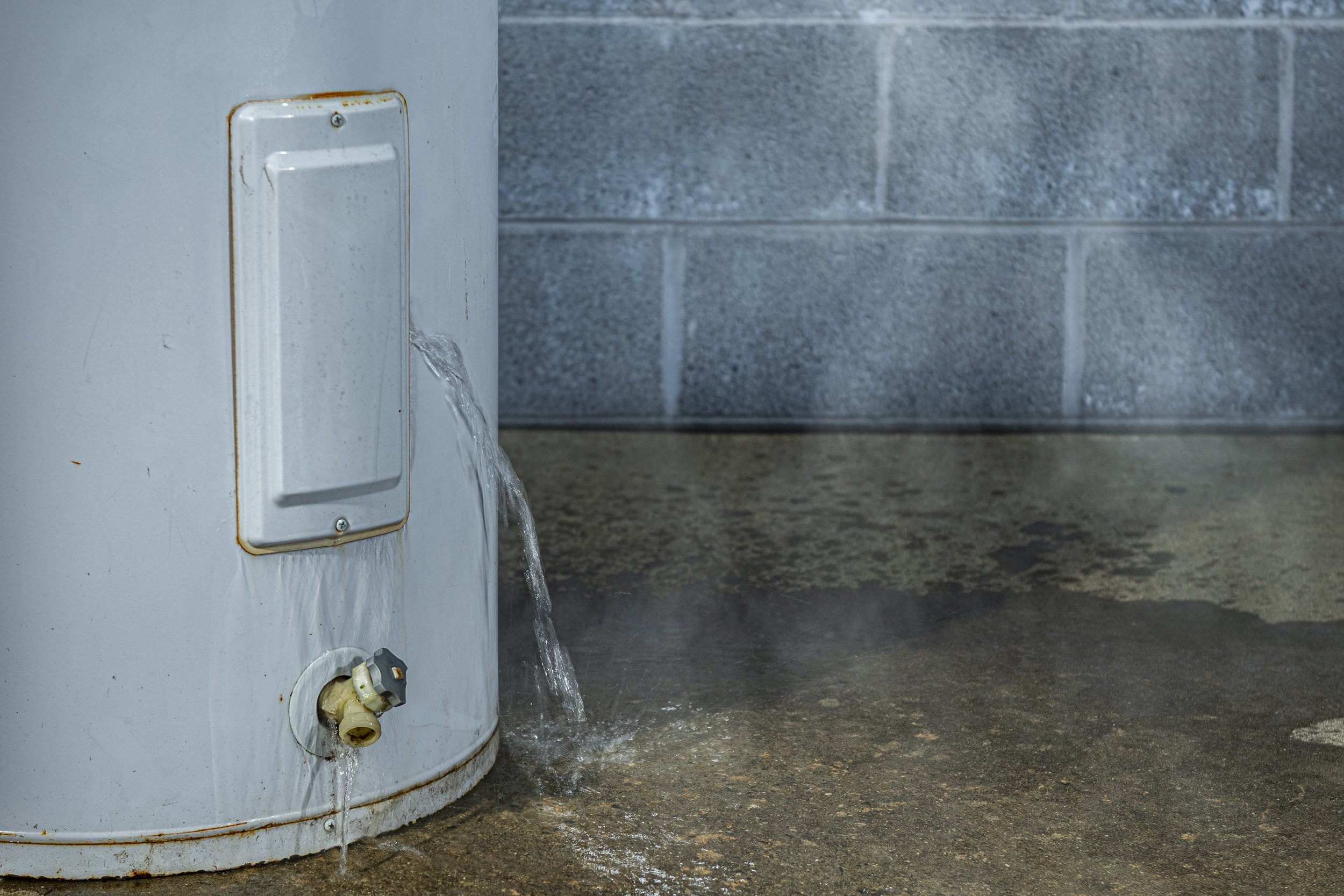What Does It Mean When Your Water Heater Is Leaking?
A water heater is a crucial appliance in any home, providing hot water for showers, dishwashing, laundry, and more. When a water heater starts leaking, it can be more than just a minor inconvenience. It can be a sign of underlying problems that, if not addressed, could lead to significant damage or even a complete breakdown of the unit. Understanding the potential causes and consequences of a leaking water heater can help you take prompt action and avoid more serious issues down the road.
Common Causes of a Leaking Water Heater
Loose Connections
Over time, the connections that bring water in and out of the water heater can loosen, leading to leaks. This can happen due to regular wear and tear, vibrations from the unit operating, or improper installation. Checking and tightening these connections may solve the problem.
Faulty Temperature and Pressure Relief Valve
The temperature and pressure relief (T&P) valve is a safety feature that releases water if the pressure or temperature inside the tank gets too high. If this valve is faulty or broken, it may leak water even when it shouldn't. This could indicate a malfunction that needs immediate attention to prevent potential overheating or even explosion.
Tank Corrosion
As water heaters age, the inside of the tank can corrode, leading to leaks. Corrosion is often caused by mineral buildup from hard water or a failing anode rod, which is designed to prevent rust. Once corrosion starts, it can weaken the tank and cause leaks, often signaling that the water heater needs to be replaced.
Sediment Buildup
Over time, minerals and sediment from the water can settle at the bottom of the water heater tank. This buildup can cause the tank to overheat, damaging the metal and leading to leaks. Regularly flushing the tank can help prevent sediment buildup and extend the life of the water heater.
Cracks in the Tank
If the water heater tank has cracks, it can cause leaks. These cracks can result from regular wear and tear, drastic temperature changes, or even manufacturer defects. A cracked tank often means that the water heater needs to be replaced, as repairs are usually not feasible.
Broken Drain Valve
The drain valve is used to empty the tank for maintenance or replacement. If this valve is broken or faulty, it may leak. This type of leak can often be fixed by replacing the drain valve.
Potential Consequences of a Leaking Water Heater
Water Damage: Even a small leak can cause significant water damage if it goes unnoticed. Water can seep into walls, flooring, and insulation, leading to mold growth and structural damage. This can be costly to repair and may affect the safety and health of your home.
Higher Utility Bills: A leaking water heater can waste a significant amount of water, leading to higher water bills. Additionally, if the heater is not functioning efficiently due to a leak, it may consume more energy, increasing your utility bills.
Reduced Hot Water Supply: A leaking water heater may not be able to maintain the desired water temperature, leading to lukewarm or cold water. This can disrupt daily activities and indicate that the heater is struggling to function properly.
Complete Breakdown: If the leak is due to a serious issue, such as a corroded or cracked tank, it can eventually lead to a complete breakdown of the water heater. This would require immediate replacement, which can be a significant expense.
What to Do If Your Water Heater Is Leaking
If you notice your water heater is leaking, it’s important to take action right away:
Turn Off the Power: For electric water heaters, turn off the power at the circuit breaker. For gas water heaters, turn off the gas supply.
Shut Off the Water Supply: Locate the cold water shut-off valve above the water heater and turn it off to stop water from entering the tank. If you cannot locate the shut off valve for your water heater you may have to shut off the water for the house.
Drain the Tank: If the leak is severe or you plan to inspect the tank, you may need to drain it. Attach a hose to the drain valve and direct the water to a safe location, like a floor drain or outside.
Inspect and Call a Professional: Check for obvious signs of damage, like loose connections or a faulty valve. Regardless of the issue, it's best to call a licensed plumber to diagnose the problem and recommend the best course of action. Sometimes issues like this simply require water heater repair. Other times it requires water heater replacement.
Preventing Future Leaks
Regular maintenance is key to preventing water heater leaks. Here are a few tips to help maintain your water heater:
Regularly Inspect the Unit: Periodically check for signs of wear, rust, or corrosion. Early detection can help prevent bigger problems.
Flush the Tank Annually: Flushing the tank helps remove sediment buildup that can cause corrosion and damage. This simple maintenance task can extend the life of your water heater.
Check the Anode Rod: The anode rod helps prevent corrosion inside the tank. Check it annually and replace it if it's significantly corroded.
Maintain Proper Pressure: Make sure the pressure in your water heater is not too high. High pressure can cause leaks and damage to the tank.
Taking Action When Your Water Heater Leaks
A leaking water heater is not just a minor inconvenience; it can be a sign of more serious problems. By understanding the common causes and potential consequences of water heater leaks, you can take swift action to mitigate damage and prevent future issues. Regular maintenance and inspections are essential for keeping your water heater in good condition and ensuring a steady supply of hot water in your home. If you're unsure about the cause of a leak or how to fix it, always consult a professional plumber for advice and repairs.

